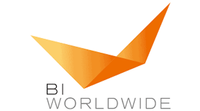Is middle management losing its appeal? Here’s what businesses can do about it
Middle management roles are becoming increasingly difficult to fill - and even harder to retain. Once seen as the gateway to senior leadership, these positions are now being viewed as high-stress, low-reward jobs that offer little by way of autonomy, progression or purpose.
According to Gallup’s State of the Global Workplace Report 2025, manager engagement is down - to 27% from 30% - but is particularly prevalent among younger and female managers.
Without intervention, organisations risk ending up with weaker leadership pipelines, stalled succession planning and a less diverse future leadership base which in turn could have a serious knock-on effect to workplace culture when middle managers are the front line to employee engagement.
It’s a complex challenge, but not one that businesses are powerless to fix. Those that act now, rethinking structures, support and working cultures, stand a better chance of reinvigorating the appeal of middle management and securing the leadership talent they’ll need in the years ahead.
The problem with the current model
At the root of the issue is an imbalance between responsibility and reward. Middle managers are expected to deliver results, support their teams, and drive change, often without the authority, time or training to do so effectively.
Many are stretched thin, juggling conflicting demands while navigating workplace changes that often haven’t kept pace with modern ways of working.
This pressure is compounded by a lack of clear progression. Economic uncertainty has tightened budgets for training and development, while rigid hierarchies leave little room for upward movement. The result is a growing number of managers are questioning the value of stepping into - or remaining in - these roles.
Workplace culture hasn’t helped either. Proximity bias, presenteeism and a reliance on outdated performance measures are leaving hybrid and remote managers feeling disconnected, undervalued and excluded from opportunities.
At the same time, many employees are prioritising wellbeing and flexibility over career status, eroding the traditional appeal of climbing the corporate ladder.
Rethinking leadership structures
To reverse this trend, organisations need to be willing to break away from old assumptions about how leadership should work. One solution lies in more agile, flexible structures.
Matrix models, for example, distribute responsibility more widely, enabling teams to collaborate across functions without relying solely on top-down direction. This both reduces pressure on individual managers and encourages a broader sense of ownership across the business.
There’s also value in moving away from fixed job titles and linear career paths. Offering stretch opportunities, such as temporary leadership roles or cross-functional projects, gives employees a way to develop and grow without needing to wait for a formal promotion.
This can help retain ambitious talent, especially those who are motivated by variety, learning and purpose rather than hierarchy.
A more human approach to management development
Reinvigorating interest in middle management also requires a shift in how organisations support and develop their managers. Traditional training alone won’t do the job, particularly if it’s delivered in a one-size-fits-all format or treated as a box-ticking exercise. Instead, businesses should create space for reflection, peer learning and applied development.
Support shouldn’t end with training, either. Ongoing coaching and mentoring - formal or informal - can make a significant difference to how confident and connected managers feel.
Practical support in managing team wellbeing, hybrid working and handling conflict should also be prioritised. Managers who feel equipped and supported are far more likely to stay motivated and effective.
Reward and recognition play a crucial role, too. For middle managers, who often sit at the centre of organisational pressure, feeling seen and valued can be a powerful motivator.
Well-designed reward and recognition programmes reinforce the behaviours and values that matter most, and helps create a culture where contribution is acknowledged, not overlooked.
Visibility, inclusion and modern role models
Representation is another vital piece of the puzzle. If people don’t see managers or leaders who reflect their values, lifestyles or backgrounds, they’re unlikely to view those roles as desirable.
For younger workers in particular, leadership needs to feel authentic, not performative, and something to aspire towards.
Organisations can help shift perceptions by spotlighting diverse leadership styles and making space for different types of ambition. That means moving away from outdated expectations around hours, presence or working styles and recognising success in a broader, more inclusive way.
Making work-life integration a reality
One of the biggest deterrents to stepping into management is the fear of sacrificing personal priorities. Many potential leaders see it as a binary choice between career growth and quality of life.
If businesses want to attract and retain middle managers, they need to show, clearly and consistently, that it’s possible to have both.
That means embedding flexibility into the culture, not just the policy. Hybrid and remote work should be supported by clear expectations, fair performance measurement and equitable access to opportunities.
Policies around parental leave, carer responsibilities and mental health support need to be actively encouraged and normalised, not left gathering dust in the employee handbook.
The path forward
Middle management may no longer hold the prestige it once did, but it remains a vital part of how organisations function and grow. Rather than trying to recapture old models, businesses now have an opportunity to redesign these roles with purpose, autonomy and sustainability at their core.
Supplied by REBA Associate Member, BI WORLDWIDE
BI WORLDWIDE is a global engagement agency delivering measurable results for clients through inspirational employee and channel reward and recognition solutions.








